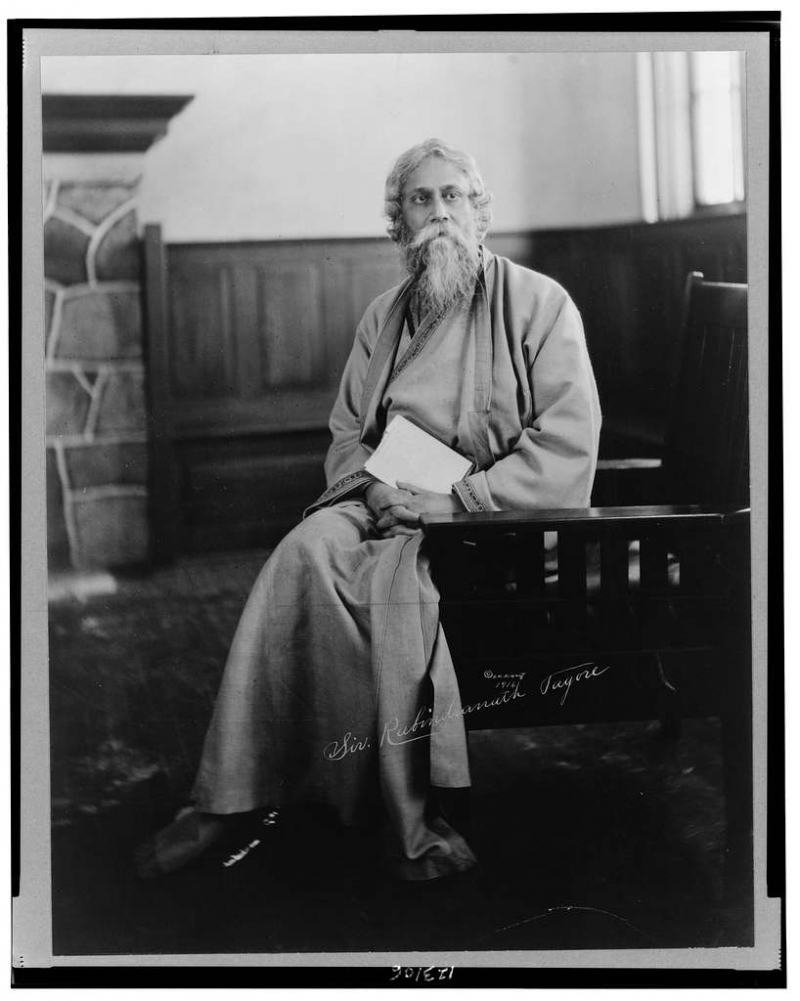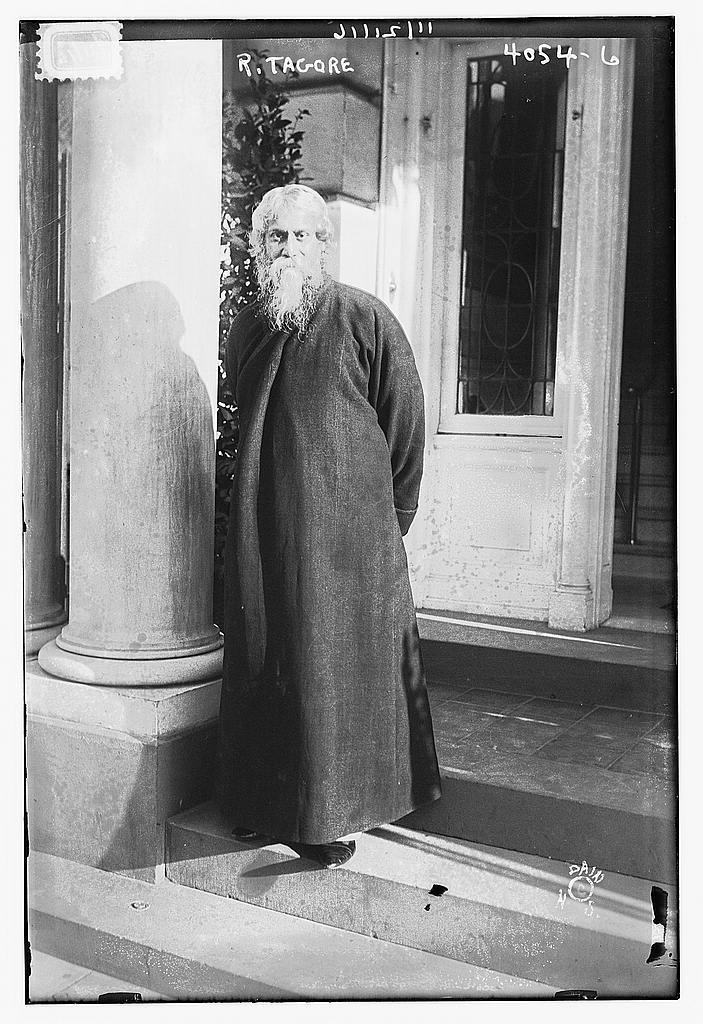Rabindranath Tagore

Bengali poet, author, dramatist, musician, philosopher, social reformer, and artist Rabindranath Tagore also painted. In the late 19th and early 20th centuries, he used contextual modernism to transform Indian art, Bengali literature, and music.
Gitanjali was the first non-European and the first lyricist to win the Nobel Prize in Literature in 1913. He is the author of the "profoundly sensitive, fresh, and beautiful" poetry. Tagore's "elegant prose and magical poetry" are largely unknown outside of Bengal, despite the fact that his lyrical lyrics were considered to be spiritual and mercurial. He was a Royal Asiatic Society fellow. Tagore was referred regarded as "the Bard of Bengal" and went by the nicknames Gurudeb, Kobiguru, and Biswokobi.
Since his mother had passed away while he was a little boy and his father had a busy schedule, Tagore was primarily reared by servants. The Bengal Renaissance was spearheaded by the Tagore family. In addition to hosting literary magazine publications, they frequently presented theater performances and recitals of Bengali and Western classical music.
He was one of the first authors in India to break free from formal conventions and conventional poetry patterns. He had been outspoken in his opposition to the Raj for more than 50 years before to India's independence. The finest writers from India and other parts of the world continue to be inspired by his work. His writing, which has been translated into many other languages, has impacted a huge number of authors, including Pablo Neruda and Octavio Paz.
Born - Died: 1861-1941
Topics aimed at: spiritual and mercurial













